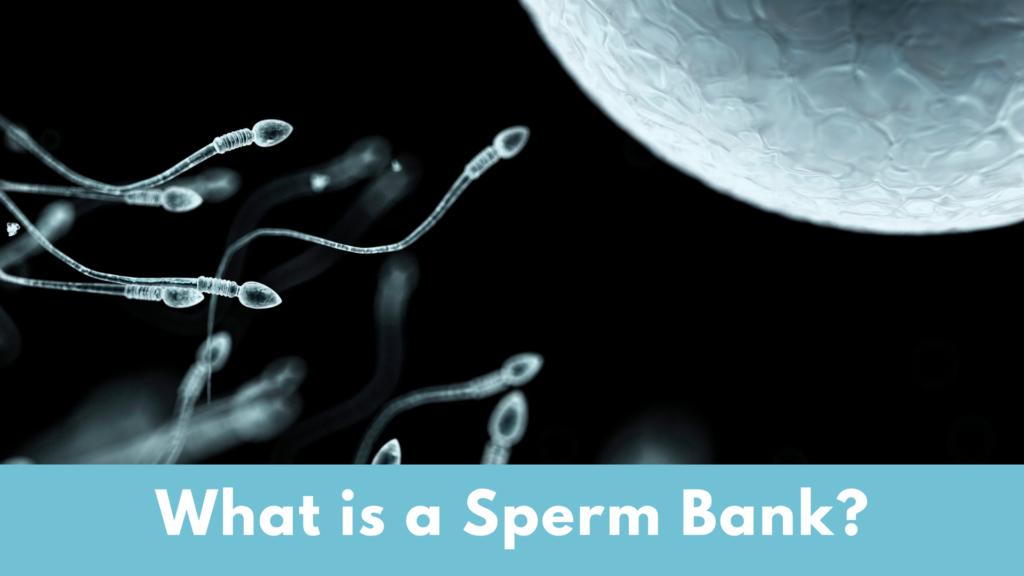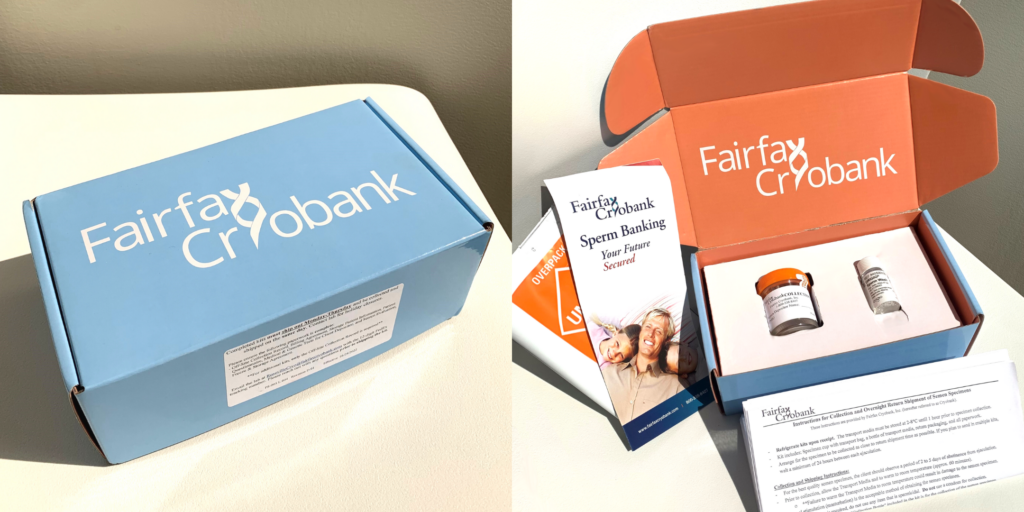What Is a Sperm Bank?

Have you ever wondered what a sperm bank does? If so, you’re not alone. Many people who intend to start a family may require the use of a sperm bank. While the question can fuel misunderstandings, a sperm bank is a facility that simply stores frozen sperm samples either from:
- People storing their own sperm for future use or
- Sperm donors whose samples are offered to intended parents for family-building
The process of sperm banking collects and freezes sperm by a method called sperm cryopreservation. People can use frozen sperm for future family-building procedures, such as in-vitro fertilization (IVF), intracervical insemination (ICI), or intrauterine insemination (IUI).
Who can sperm banks help?
A sperm bank stores sperm from donors for intended parents to purchase. In addition, many choose to store their own sperm for fertility preservation purposes. Sperm banks are for:
- People who wish to become pregnant using donor sperm
- People who wish to preserve their own sperm for medical or other reasons
- People who wish to donate their sperm to help someone known to them build their families
People who need donor sperm to start their family can access a list of donors with available sperm vials for purchase. Selecting a donor from the hundreds available can take time and patience. Donors have a significant amount of information to review including photos, audio interviews, essays and detailed medical and family information. The Donor Search provides many tools to help sort the list based on your preferences. The Client Service team is also available to help.(add link) Once sperm vials are purchased, they can be shipped in special tanks to your clinic, home or picked-up from one of our locations.
People can choose to freeze their own sperm for the future option of starting a family. These are the most common reasons for cryopreservation:
- Age: Sperm quality diminishes with age. If you want to start a family later in life, sperm preservation can help provide this option.
- Vasectomy: Some people choose to freeze their sperm before a vasectomy in case they change their mind in the future.
- Occupational exposure to high-risk environments: Jobs in the military service, firefighters, police, athletes, or X-ray technicians face an increased risk of infertility.
- Cancer therapy or surgery: If you are starting cancer treatment, you may choose to freeze sperm beforehand; radiation and chemotherapy can damage sperm production. Testicular and prostate surgery can also lead to infertility, so people may opt for sperm freezing before these surgeries.
- Gender-affirming surgery: People may preserve sperm before beginning gender-affirming hormone therapy (GAHT) or receiving gender-affirming surgery. If you’ve already started GAHT, you may still be able to preserve sperm.
- Environmental exposures: Sperm is sensitive to toxins like pesticides or heavy metals. Where someone lives or works may impact the decision to freeze sperm.
For more details on setting up an account for storing your own sperm, please visit: Sperm Banking: Storing Your Own Specimens | Fairfax Cryobank
For people who wish to provide sperm samples for someone known to them, they can go through a medical screening and collect and store samples for later use. Their samples are then released only to a designated person who will use them in her future attempts at pregacny using assisted reproductive techniques such as IUI, ICI or IVF. For more details on becoming a known donor, please visit: Directed (Known) Donor Sperm | Fairfax Cryobank
How do sperm banks work?
If you are freezing your own sperm, you’ll go through a straightforward process to do so. First, you’ll receive an infectious disease screening, usually through a simple blood test. The blood test can be taken up to 30 days before your appointment or at the time of your appointment.
Before providing a sperm sample, it is recommended to abstain from all sexual activity within 2-5 days before an appointment, which allows for the best possible specimen. Next, a person provides a sample in-clinic. Sometimes, those who have had treatments such as a vasectomy or chemotherapy require a retrieval procedure to extract sperm. People with a low sperm count may also need a sperm retrieval procedure.
The sperm sample is analyzed before freezing to establish the sperm quality. Sperm samples are typically split into separate vials and then frozen.
Sperm can be stored for an indefinite amount of time. There have been successful pregnancies and healthy babies from sperm frozen for over 20 years. When someone is ready to use frozen sperm, it will be carefully thawed. Approximately 50% or more of sperm survive the thaw process. Sperm preservation is also highly effective in assisted reproductive technology (ART.) In IVF, utilization of fresh or frozen sperm yields similar live birth rates.
If you aren’t near one of our seven locations, Fairfax Cryobank offers a sperm freezing kit so you can send in your sperm to freeze from anywhere within the United States. With this kit, you’ll have detailed instructions to preserve and transport fresh sperm within 24 hours from the privacy of your own home.
Sperm freezes well, so isn’t it possible to preserve it yourself? While your basement deep freezer might seem like a convenient option, it won’t work. Sperm must be stored at -196 degrees C in liquid nitrogen tanks.
Freezing and storing sperm through a sperm bank is considered safe and effective. The first successful pregnancy with frozen sperm was documented as early as 1953. Intrauterine insemination with donor sperm (IUI-D) is the most commonly used ART for couples with male-factor infertility.
Fairfax Cryobank also offers sperm samples from extensively screened sperm donors who are healthy men willing to have their sperm samples be used by people unknown to them. Fewer than 1% of men who apply to be donors are ultimately accepted due to rigorous quality standards. Once a donor is accepted into the program, and commits to at least 6 months of donations, he is compensated for his time, and can make up to $4000.
The FDA regulates the process and requires that donor sperm samples be quarantined for 6 months. Only after a series of negative infectious disease tests and physical exams on the donor can they be released for purchase.
How much does a sperm bank cost to store your own sperm?
There are separate costs for evaluation, collection, analysis, ongoing storage, and handling upon usage. Select states have large group insurance mandates that cover freezing sperm costs when it’s medically necessary. Fairfax Cryobank also offers financing options.
To store your sperm, you can select a monthly storage fee of $45 or take advantage of multi-month or yearly discount options. An account is charged only one fee, regardless of how many sperm samples, oocytes or embryos are being stored. You can find out more details about costs on our fee page.
Sperm banks help preserve fertility for those who wish to store their own sperm as well as providing donors to aid in family-building. Whether someone is seeking donor sperm for assistance getting pregnant, freezing sperm for the future, or donating, a sperm bank can help. At Fairfax Cryobank, we take pride in helping you create your family.
When you are ready to find a sperm donor, it’s a simple process. Watch our Getting Started video to learn more.








